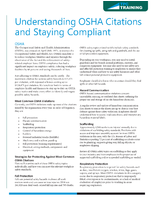Stringent Appliance Standards apply to home water heaters.
Share:
Press Release Summary:
U.S. DoE Secretary Steven Chu announced that Department has finalized higher energy efficiency standards for heating appliances that will save consumers up to $10 billion and prevent up to 164 million MT of carbon dioxide emissions over 30 years. These standards - for residential water heaters, pool heaters, and direct heating equipment - will reduce air pollution, prevent release of nitrogen oxides and mercury, and avoid emissions equivalent to taking 46 million cars off the road for 1 year.
Original Press Release:
Secretary Chu Announces More Stringent Appliance Standards for Home Water Heaters and Other Heating Products
New standards to save consumers up to $10 billion over 30 years
WASHINGTON - U.S. Department of Energy Secretary Steven Chu announced today that the Department has finalized higher energy efficiency standards for a key group of heating appliances that will together save consumers up to $10 billion and prevent up to 164 million metric tons of carbon dioxide emissions over 30 years. These new standards - for residential water heaters, pool heaters and direct heating equipment such as gas fireplaces - will reduce air pollution, prevent the release of harmful nitrogen oxides and mercury, and avoid emissions equivalent to taking 46 million cars off the road for one year.
"These energy-conserving appliance standards are a critical part of the Administration's overall efforts to save energy in homes and businesses nationwide," said Secretary Chu. "By raising the energy efficiency requirements of our everyday appliances, we will save money for American families and companies, reduce carbon pollution, and enhance our energy security for decades to come."
The standards released on Wednesday increase the stringency of the existing minimum conservation standards for these three types of residential heating products, which account for about 18 percent of energy use in homes across the country. The standards will significantly reduce energy consumption by these products, including decreasing energy use in large electric storage water heaters by 47 percent and by more than 30 percent in large gas water heaters. The standards for water heaters will go into effect in 2015, while the standards for pool heaters and direct heating equipment - including gas-fired wall, floor and hearth heaters - will apply to products manufactured in 2013 and beyond.
Under the Obama Administration, the Department of Energy has accelerated the pace for finalizing new appliance standards and has placed new resources and emphasis behind the enforcement of these important standards. Since President Obama came to office, DOE has issued or codified new efficiency standards for more than twenty different products, which will save consumers between $250 and $300 billion on their energy bills through 2030:
March 2009 - 14 consumer and commercial products with standards prescribed in the Energy Independence and Security Act of 2007 (EISA 2007), including dishwashers, general service incandescent lamps and residential clothes washers
April 2009 - Microwaves, kitchen ranges and ovens
July 2009 - General service fluorescent lamps and incandescent reflector lamps
July 2009 - Commercial heating, air-conditioning and water-heating equipment
August 2009 - Beverage vending machines
December 2009 - Commercial clothes washers
February 2010 - Small electric motors
March 2010 - Residential water heaters, direct heating equipment and pool heaters
In addition to accelerating the pace of new final standards, the Obama Administration has significantly increased the enforcement of existing conservation standards. For example, on Monday, the Department ordered that AeroSys, Inc. stop distributing an air conditioner and heat pump that independent testing showed were consuming more energy than allowed under federal efficiency standards. To ensure that the appliance standards are as effective as possible, DOE will continue to work aggressively and consistently to enforce energy efficiency standards across the country.




